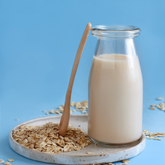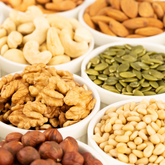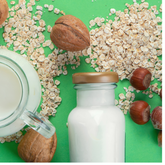If a significant portion of the global population were to give up milk consumption, there could be several potential environmental, health, and economic impacts. Here are a few potential outcomes:
Environmental Impact:
Reduced Greenhouse Gas Emissions: Livestock farming, including dairy cattle, contributes to greenhouse gas emissions, particularly methane. A reduction in milk consumption could lead to lower demand for dairy production, potentially resulting in reduced emissions from the dairy industry.
Reduced Land Use and Deforestation: Dairy farming requires land for grazing and feed crops, which can contribute to deforestation and habitat loss. If milk consumption were to decrease, there might be less pressure to clear land for dairy-related purposes.
Water Conservation: Dairy farming requires significant amounts of water for animal hydration, feed crops, and processing. A decrease in milk consumption could alleviate some water stress in regions where water resources are strained.

Health Impact:
Dietary Changes: If individuals give up milk consumption, they might turn to other sources of nutrients like plant-based milk alternatives (e.g., almond, soy, oat milk) or fortified foods. These alternatives can provide nutrients like calcium and vitamin D, which are also found in dairy.
Lactose Intolerance Management: People with lactose intolerance would likely experience fewer digestive issues if they reduce or eliminate dairy consumption. This could lead to improved gastrointestinal comfort for those affected.

Economic Impact:
Agricultural Shifts: A reduction in milk consumption might lead to changes in agricultural practices. Dairy farmers could potentially shift to other forms of agriculture, while industries producing dairy alternatives might experience growth.
Market Adjustments: If milk consumption declined significantly, the dairy industry might experience economic shifts and adjustments. This could affect farmers, processors, and related businesses.

It's important to note that any large-scale change in consumption patterns would likely have complex and interconnected effects on various sectors. The degree of impact would depend on the scale of the change, regional variations, consumer preferences, and the response of the dairy industry and alternative markets. If you want to opt for a more sustainable lifestyle and make some small changes, consider shifting to plant-based milk. If you are looking for a healthy, sustainable plant milk option, try making it with the Milky Plant Machine. With this device, you can make plant milk at home at the push of a button in just 3 minutes.




















